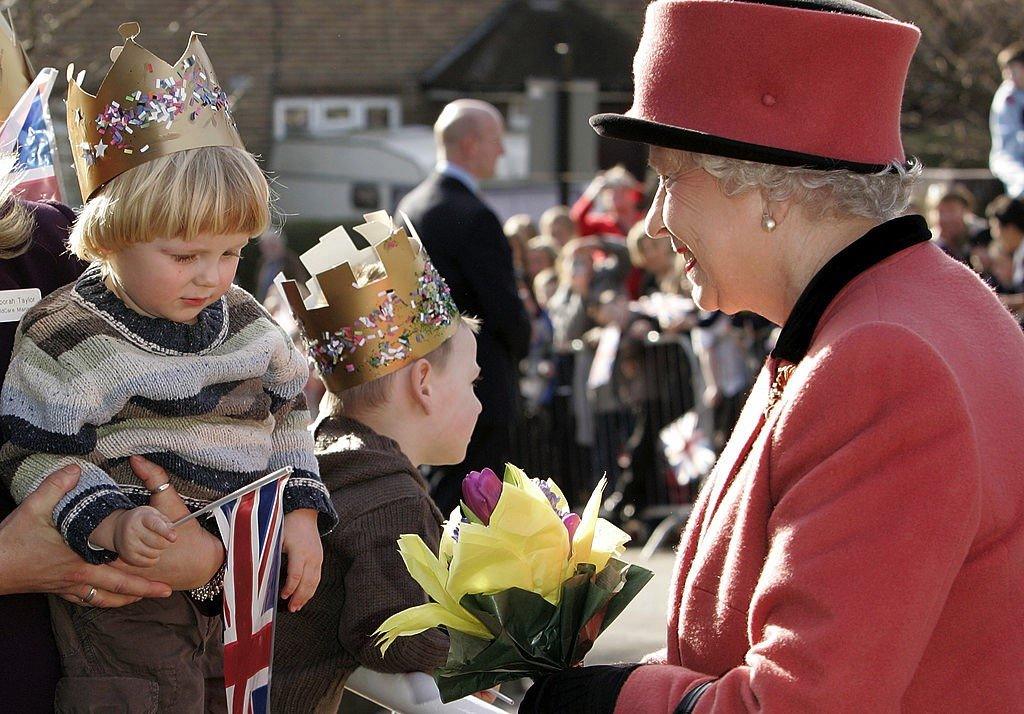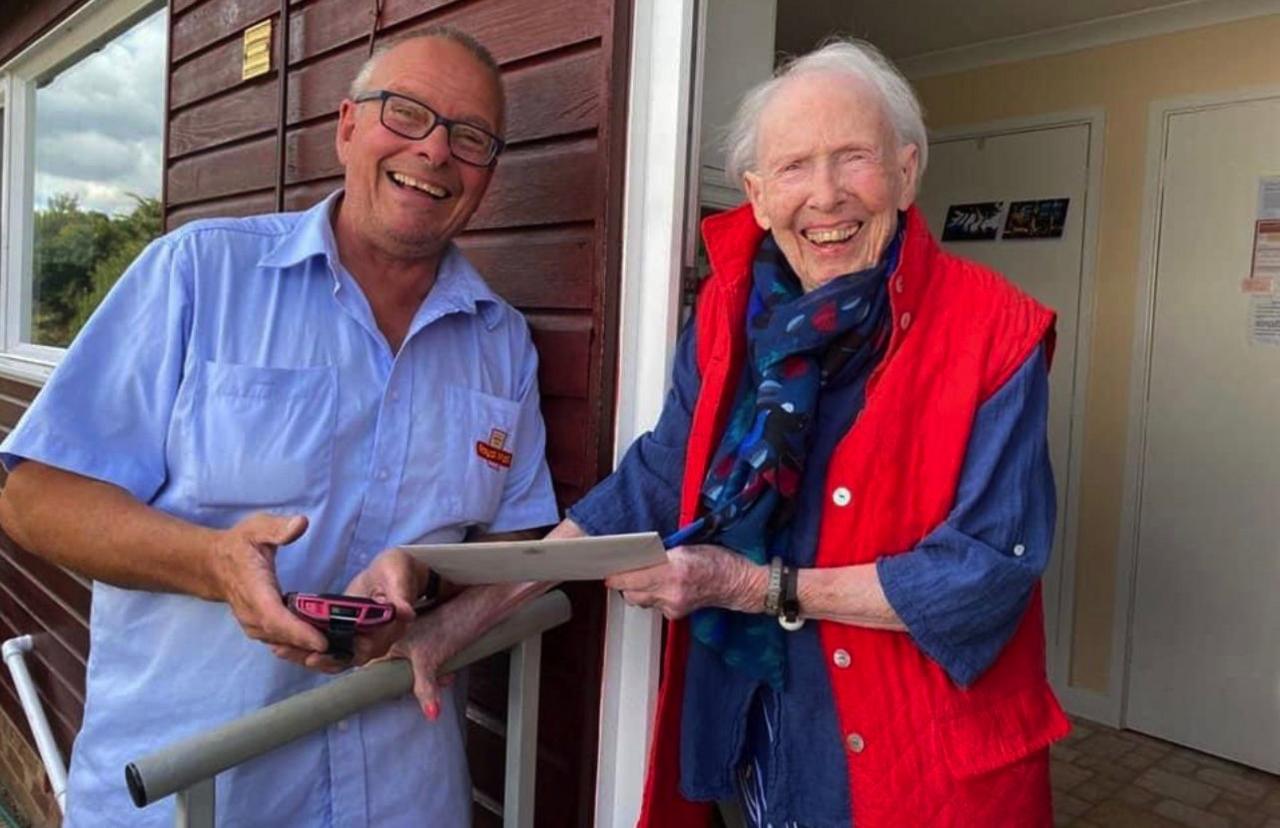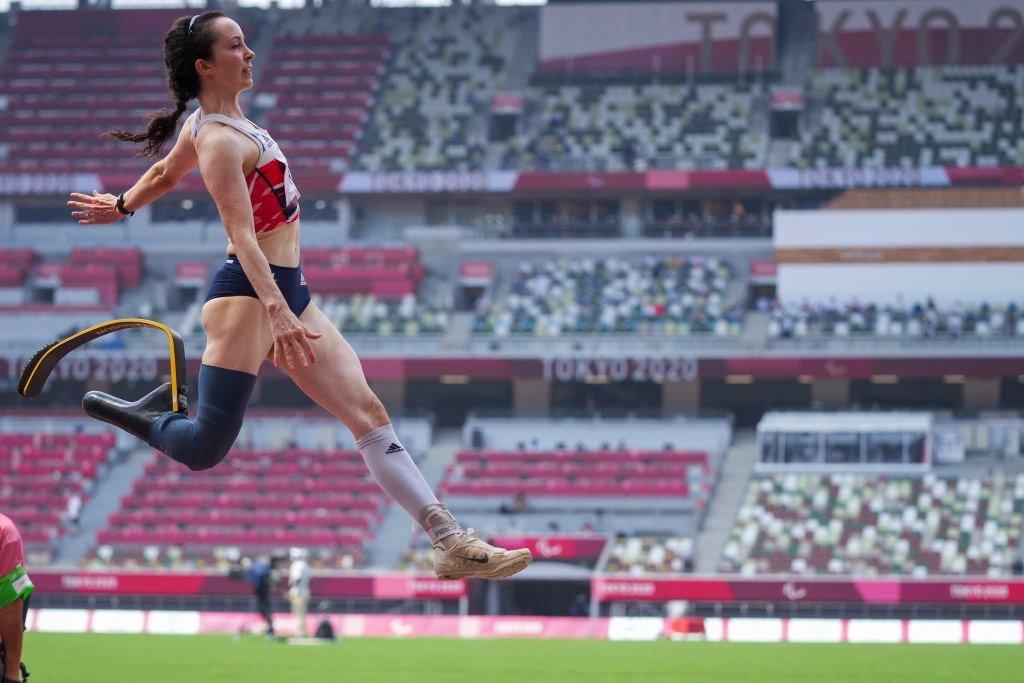No-one forgets meeting the Queen - her tributes show that
- Published

Over the past 10 days, the BBC has been asking the audience to share their memories of seeing and meeting Queen Elizabeth II, and for people to send in their personal tributes.
Thousands sent their own messages of condolence. Their stories speak to how many people felt a personal connection to Her Majesty.
Gwendolyn Hoare had long looked forward to a birthday card from the Queen. Her 100th birthday was going to be a big event, family members scattered around the world were returning to Manningtree, in Essex, for the big day.
However, the death of the Queen, coupled with a postal strike, rather dampened her hopes of receiving a traditional birthday message from the monarch. Yet on the day of her birthday the postman unexpectedly popped into view. The strike had been called off and he knew he was delivering something special.
The photograph says it all. There were a few tears.

Later that day, Gwendolyn's niece, Sue, decided to share the story via the BBC's Your Tributes online page, which is how I ended up filming day two of Gwendolyn's birthday. It was a little moment of joy in a weekend of national mourning, black ties and solemn processions.
It reminds us that, while the official record of the life of the Queen will be a series of great moments of national pageantry, those were rare special occasions. Her life was much more about handshakes, birthday cards and meeting ordinary, but often remarkable, people.
No-one forgets a conversation with the Queen. And our tributes page has been a little reminder that for hundreds of thousands of us, the Queen was more than a distant figure in a palace. She was someone with whom they felt a personal connection.
Proudest day
Stories such as Dar Churcher's tell us as much. On 8 June, 1959, the Queen and the Duke of Edinburgh visited the Submarine Command, in Gosport, where Mr Churcher's father, Walter "Bob" Churcher, a petty officer in the Royal Canadian Navy, was training to become a submariner. When a photograph of the encounter appeared in the Portsmouth Evening News, there was high excitement. Many copies were bought and sent around the world. It was the proudest day of Bob's life.
Kerri Parker, 38, from Norwich, was told in 2017 that she had terminal brain cancer. In July, she was invited to meet the Queen at the Platinum Jubilee Garden Party, in recognition of her fundraising work for Brain Tumour Research.
It was, she says in her tribute, a turning point - from feeling "hopeless" to having a sense that she could "beat this".
Paralympian Stef Reid also recalled a meeting with the Queen. "I have quite an iconic-looking artificial leg," she wrote. "I could tell when the Queen first walked up she flagged it and I was preparing myself for her to ask about it, but she didn't. She actually commented on my dress and how beautiful it was. She knows that's not the most interesting thing about me and it was a really reaffirming moment."

Stef Reid: 'She actually commented on my dress and how beautiful it was'
These are just three from hundreds of memories shared with BBC News. They all reflect one simple and easily overlooked fact: the Queen's job was to recognise and honour achievements on our behalf. Her skill was the ability to remain regal and make what was often a daunting and formal encounter a moment of personal joy.
When Clare Christian, a politician from the Isle of Man, met Her Majesty at open-air Tynwald ceremony in 2003, the Queen paused just as she about to move on and asked: "How is your father?" Clare's father was ill and being treated in hospital at the time. It was, she says, "particularly moving".
For anyone who has attended an honours ceremony at Buckingham Palace, it is an event that could easily feel like a production line. You are always one of many. However, scroll down the tributes page, and again and again the same thought is expressed.
Here, from Sir Michael Aaronson, former director general of Save the Children: "Those days are something else really. She just had a way of making you feel you were the most important person in the room."
When the Queen, then a young woman, talked of her life of duty, it was a reflection that from that point onwards she was a symbol of the nation.
At all those hundreds of gala openings, the garden parties and investitures, every handshake, every smile, every award; it was from all of us.

